The other day on the phone, my mother told me again. “You do too much. Why do you do this to yourself? You’re always running around. You should learn how to say no.” She’s said these things to me for years, partially because she remembers how exhausting it is to be a mom. But also because she can’t understand why I take on so much responsibility that falls outside what she considers the normal realm of family obligations.
Sure, I’m taking care of a home, a marriage, two kids and a dog, as well as attempting to get a new business off the ground. I also freelance, volunteer a lot of time to my children’s school, attend conferences, and very often host meetings and get-togethers in my home. This is stuff my mother didn’t do when she was raising a family—partially because she wasn’t cursed with the same kind of frenetic energy I have, but also because she had no real need—like I do, living so far from my family back East—to build community.
I come from a tight clan, the descendants of New York City immigrants who cohabited in neighborhoods with folks from the same Italian villages. Even though I was fourth generation and my extended family had expanded into various parts of the tri-state area by the time I was born, my siblings and I were still taught that anyone who wasn’t kin was an outsider. “You can’t really trust anyone like you can trust family,” was one of my maternal grandmother’s favorite lines, and I grew up thinking that someone to whom I didn’t have a direct blood line—even the coolest person on earth—could never be in the inner circle. We lived just blocks from some of our relatives, and although my mother had a few friends, my grandmother and aunt were the primary people, besides my dad, who she hung out with and confided in. Although some of our neighbors felt like family, because we’d lived for so long in such close proximity, they would never truly be considered “one of us.”
As much as I loved my family and the coziness of the homestead, growing up I had a wandering eye. Manhattan was just a 30-minute train ride from the tidy little suburb we lived in, and I cherished each trip we took into the gleaming metropolis, buzzing with its high-octane energy and neon-lit glamour. I wanted to know these stylish, sophisticated women I saw slithering into the back seats of taxis, and those clusters of twentysomethings entering dark clubs from which jazz music wafted out onto the sidewalk. Flash forward to my freshman year at college, when I fell in love with another city, Chicago. I was the first in my mother’s family to go away to school, and I got to know types of people I had never before encountered: Midwestern girls with impeccable manners who encouraged me to do sorority rush. Southern Belles who showed off photos of themselves wearing pouffy cotillion dresses. And West Coast kids who bragged about listening to Pink Floyd and smoking pot on the family vineyard. They were nothing like the working-class and new-moneyed Italian and Jewish kids I’d grown up with, and I was enthralled. With all of them.
I also knew I needed to make real connections within this eclectic mix of dorm personalities, now that the security of family was 2,000 miles away. Just as you learn how to operate coin washing machines and sniff out boys who are players, in college you quickly learn how to build community for self preservation. You need friends to keep a watch over you at frat parties and help you get through microeconomics. You need your peeps and you find them: those like-minded individuals who look out for you and make you feel like home—and eventually become your second family. Then you hold onto them for life. Or at least until summer break rolls around.
You eventually find those like-minded individuals who look out for you and make you feel at home—and eventually become your second family.
Sometimes, the folks you’re most drawn to are much different than you, or have values you’ve never been exposed to before. You learn a lot from these people. You expand your horizons in ways you never thought possible. You come home for Thanksgiving pronouncing “water” with an Illinois accent and driving your family crazy because you’re now sort of a Buddhist instead of a Catholic. As you click with and form close bonds with those “others,” you continue to get to know yourself. You are starting to become who you are. Later, when you’re living in the Big City and maybe even raising some kids, you know that building a community is even more critical. When you’re in the trenches of motherhood, you need that proverbial village to help you stay sane. You rely on other mamas to share breastfeeding woes and cover for you at preschool pick-up. You cherish other women who feel comfortable putting bandages on your kid’s skinned knee, and letting you take care of their children in return. I imagine that as I age, I will continue to need my community even more. I’ll want people to share empty-nest stories with and discuss body changes with, and (God forbid) play mahjong with.
I realize that the older I get and the better I know myself, the more grounded I feel living outside the place where I grew up. That’s mostly because I now have my own little nuclear family, which includes an incredibly supportive husband. But it’s also because life lessons have taught me humility, which in turn has made me more open-minded and compassionate toward the people I meet, and able to embrace their differences more than ever. However, I’m also drawn to individuals who share certain traits with my blood relatives. Some of my best buds are the kind of affable women who do my dishes for me after a party or fight with me about paying the check, like the kooky gals in my family do. They’re the affectionate ones who like to hug and chitchat and pepper their dialog with terms of endearment (you know what I mean, honey). In the end, all I really expect from them is that they’re non-judgmental and supportive and game for some good conversation now and then. Like “real” family, we might not always think the same, but we accept each other for who we are, quirks and all.
Like “real” family, we might not always think the same, but we accept each other for who we are, quirks and all.
I must admit there are things I miss about my crazy Italian family, because, hey, there’s always some fun in crazy. That’s probably why I prefer my home to be a noisy revolving door of drop-in personalities—much like the semi-chaotic household I grew up in. (Although most of our friends here in San Francisco have to drive to get to our house, instead of just walk from down the street.) If I had my way, I’d leave my door unlocked so that chatty neighbors could swing by unannounced, like the characters from a TV sitcom. I always keep a stash of snacks and wine on hand, just in case an impromptu party erupts. City living can feel “buttoned up” at times, but I still relish the notion of a crowded house and a bevvy of fun-loving friends sipping coffee and exchanging ideas. Sharing our family’s space and making people feel welcome lights me up.
Although all this can never replace the “real” family I left behind, in some ways my new community is better. My non-blood relatives and I don’t take each other for granted. And we have no childhood grudges or birth-order complexes to contend with. We simply enjoy each other’s company. Of course, we also need each other to survive in this high-intensity world. Not only so we don’t feel alone, but also so we can teach our kids that there’s a world beyond their doorstep and that the earth doesn’t revolve around them. Volunteering for local charities, joining neighborhood organizations and taking an interest in the people who live on our block are all messages to our children that they’re part of something bigger than themselves. And this time of year it’s a particularly important lesson. Writing kind notes and delivering gifts to neighbors, hosting a holiday party or inviting stray friends over for a meal are just some of the simple ways to build community and demonstrate the true meaning of the holidays.
From all of us at Red Typewriter, happy holidays to you and your family. Both the one you grew up in and the one you’ve created for yourself. Nurture and cherish them with all you’ve got.

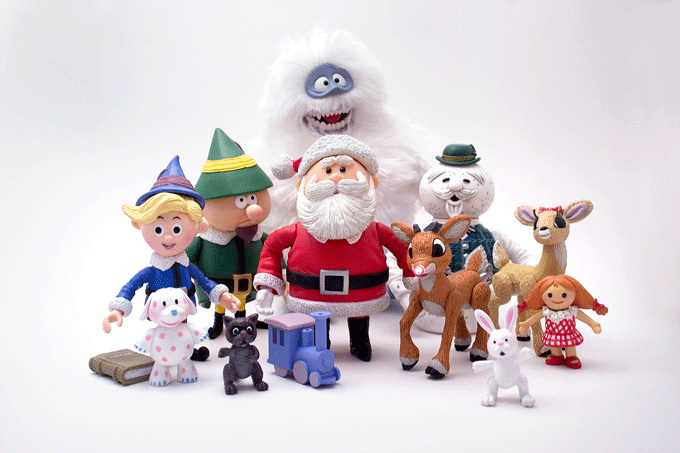

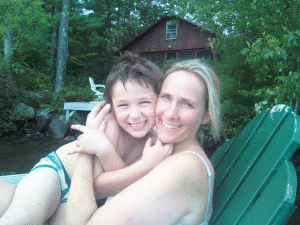



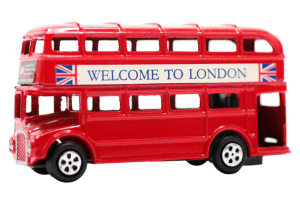


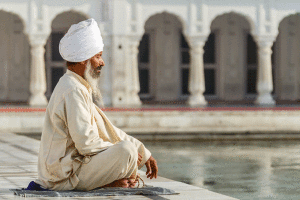
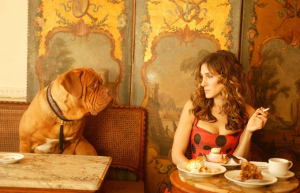

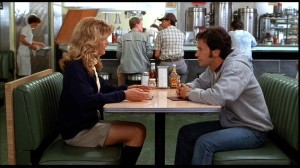







2014/12/18 at 7:07 am
I’ll be at the (God forbid) card table with you in that empty nest!
2014/12/18 at 2:00 pm
Terrific piece Maryann. I would love to be one of your quirky drop in neighbors! Merry Christmas
2014/12/18 at 9:19 pm
Merry Christmas to you, too, Laurie. You can be that neighbor anytime!
2014/12/18 at 9:21 pm
I love a crowded house too, and realize how important my community is since I moved away from my family six years ago. I loved the message that we need to show our kids the importance of reaching out to neighbors and expanding beyond our own blood. It does take a village.
2014/12/23 at 10:39 am
Lovely sentiment and column MA. Thanks for sharing!